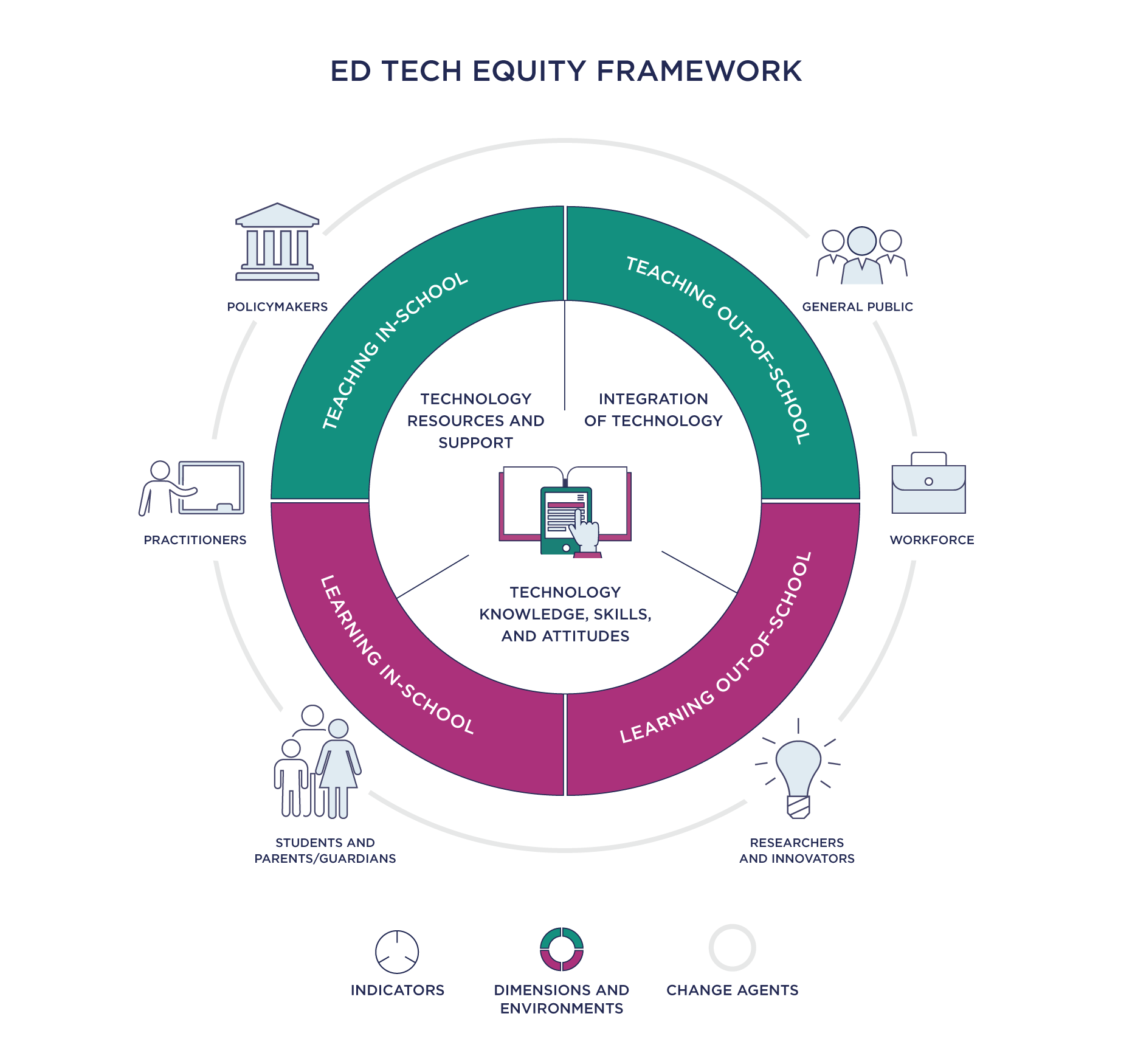In a recent blog post, NCES announced the groundbreaking work of the NCES Ed Tech Equity Initiative. The Center’s efforts for this initiative focus on working with stakeholders to identify how NCES data collection, reporting, and dissemination efforts can better inform the relationship between technology and K–12 students’ educational experiences and outcomes.
THE FRAMEWORK
As part of these efforts, NCES developed a framework to better understand the various facets that influence technology in K–12 education, as well as how these facets interact. The framework was created through extensive research and is designed to be revised over time to align with changes in the ed tech equity space.
The NCES Ed Tech Equity Framework, included below, is comprised of four critical components—Indicators (located in the center of the framework), Dimensions and Environments (the green and purple circle), and Change Agents (shown in the outer gray circle).
HOW IT WORKS
The interaction of the framework elements informs ed tech equity and NCES data collection:
- Indicators represent the broad categories used to measure or assess education technology—relevant NCES survey questions will fit within at least one of the Indicator categories.
- Dimensions are the key perspectives through which NCES focuses its ed tech equity data collection efforts.
- Environments are the settings that facilitate educational experiences.
- Finally, Change Agents are factors that impact or influence students’ educational experiences and outcomes.
Below, a few existing NCES items are mapped to the framework to illustrate how it will be used in NCES data collection:
- TECHNOLOGY RESOURCES AND SUPPORT
- TEACHING IN-SCHOOL: In this school year, did your school offer training for teachers on how to use computers or other digital devices? —NAEP, 2017
- TECHNOLOGY KNOWLEDGE, SKILLS, AND ATTITUDES
- TEACHING OUT-OF-SCHOOL: During the last 12 months, which of the following activities have you or another family member done with [your 9th grader]?
- Worked or played on a computer together —HSLS, 2009
- INTEGRATION OF TECHNOLOGY
- LEARNING IN SCHOOL: Do you use the Internet to do any of the following tasks for schoolwork (including classroom tasks, homework, studying outside of class)?
- c) Collaborate with classmates on assignments or projects —TIMSS, 2015
NEXT STEPS
NCES recently convened an expert panel to assist with evaluating NCES’ existing technology-related efforts and provide recommendations on priorities for future NCES data collection, reporting, and dissemination. Feedback from the panel will assist us in our efforts to provide greater focus on the relationship between technology and K–12 students’ educational experiences and outcomes. We plan to share insights from the expert panel meeting in an upcoming blog post.
By Halima Adenegan, NCES, and Emily Martin, Hager Sharp